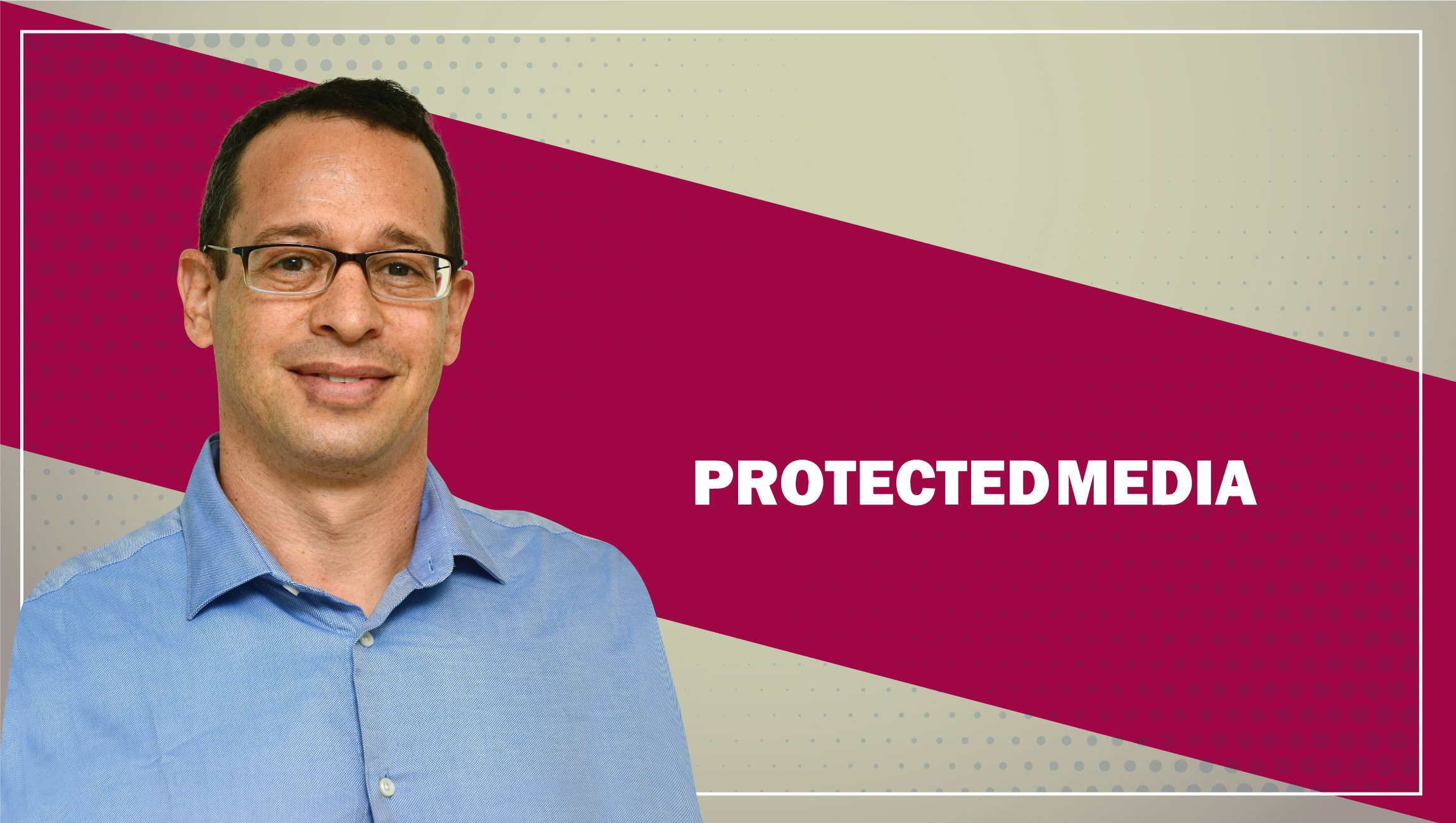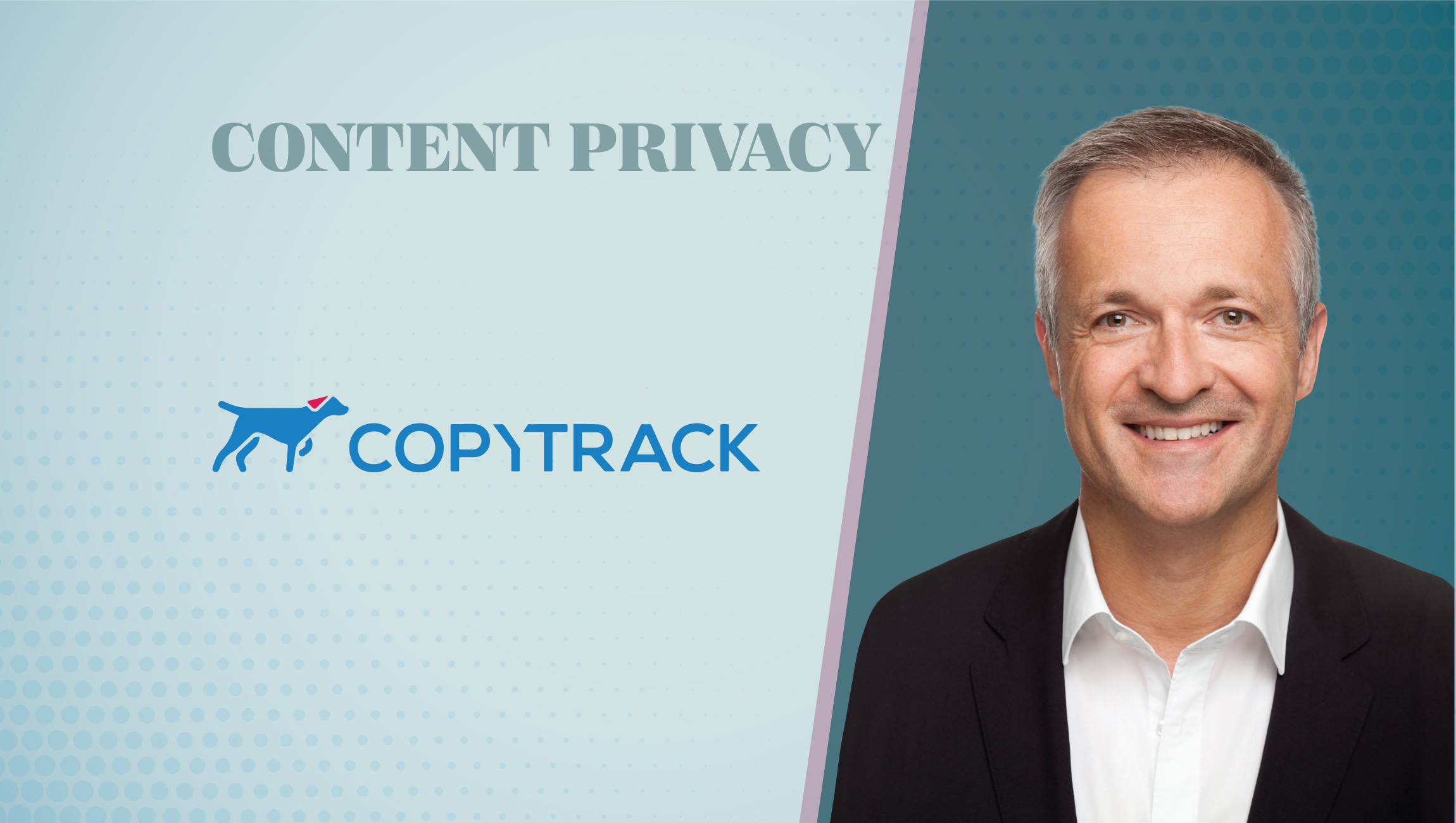[/vc_wp_text]
Tell us about your role and journey into technology. How did you conceive the idea of launching Protected Media?
I was working with my partner, Dr. Zac Sadan, building network security solutions and protecting organizations from cyber attacks, when we began to see viruses hitting on advertisements, for example, clicking on them and interacting with them. We did quite a bit of research and recognized that we’d unearthed a yet untapped security market. On one hand, it was a badly kept secret as everybody knew there was fraud in the online advertising industry but no one in the security space had developed a specific solution to deal with it. Instead, the advertising market was trying to tackle fraud with ad servers and data patterns, so we realized there was a real need for a company such as Protected Media. And that need is still growing as more and more sophisticated hackers enter the market.
Since the time you launched Protected Media, how much have the AdTech and Brand Safety standards evolved?
I think standards have evolved to create significant and new ways of understanding not just brand safety but viewability, measurement and ad verification in general. The real challenge, however, is recognizing that this is an ongoing, continuous battle with attackers who are constantly upping their game and becoming more sophisticated at what they do. Many fraudsters who operated in the early days of online ad fraud are no longer active, but some of the more sophisticated hackers, who were busy stealing money from banks and insurance companies, for example, have now entered the AdTech space and developed a lot of tools that are a lot harder to detect.
What has been your most challenging business decision at Protected Media? What advice and lessons do you have for other CMOs and CEOs in the AdTech space?
Compared to other industries, the big difference for the advertising market is that you have a continuous, ongoing relationship with potential attackers. They usually come through channels with which you have a longstanding relationship such as the groups that supply you with ad traffic or your livelihood, or via your agency or a platform you’ve been working with for a long time. Business leaders need to build a strategy that addresses attacks proactively and head-on, rather than trying to avoid attacks completely.
The nature of the advertising business means it’s critical to deal with attacks quickly and efficiently when they surface rather than trying to punish the other channels on which you’re dependent or resorting to cybersecurity threat activity. It’s about trying to build a bridge of trust so you can use verification in a positive way to expand your business.
How can advertisers and publishers benefit from brand safety providers? Tell us how cybersecurity fits into the ad fraud ecosystem.
Besides playing a critical role helping advertisers and publishers build a proactive approach to managing threats, Brand Safety providers and technology vendors can help align interests across the AdTech ecosystem. For example, an agency might deliberately turn a blind eye to problems with fraud as they feel they don’t have an incentive to tell the client or be the messenger bearing bad news. Building a strategy, which enables publishers and advertisers to react to fraud appropriately, helps lower potential conflict of interests with the agency and reduce cases where the agency isn’t sure if it’s in its best interest to do something that is in the best interest of the advertiser.
Cybersecurity is multi-layered — it’s an engine within a system, which needs to address and understand the specific needs and values of the industry and the customers and it has to fit into that specific customer’s strategy or brand safety. You need the knowledge to identify threats as well as a strategy to know what do when attacked.
What valuable lessons did you learn from 2018’s data privacy updates and their consequence on your AdTech platform?
I think it’s still early to see the full impact, but I feel that the legislation has hit smaller industry players far harder than the larger well-resourced organizations who can afford to take risks and pay fines for any transgressions. On the whole, larger firms, have the luxury of larger budgets to weigh up the risks of non-compliance, though if they are caught, everyone loses because a lot of people are dependent on them. We’ve seen smaller firms who can’t afford to take risks being harmed significantly by the implementation of the requirements — and in some cases, losing business. I think the legislators now need to demonstrate what they are going to do to address this disparity.
Tell us about your go-to strategies to support rapid growth and the lessons learned through periods of massive shift and transition.
There is more than one strategy you can adopt if you’re aiming for rapid growth of course, but for me, the key is getting the DNA of the company correct and embedding your soul in the company right from the start. As you want to grow your original idea, you build on these foundations by bringing on board great people and creating management pockets, which absorb some of the philosophy or culture that’s in the bones of the company. If the DNA picked for the company is correct, even if the market changes or you need to pursue things differently, you can still grow rapidly from the same kind of company — it’s not a different company with the same logo.
What does your technology community look like? Who do you meet at events and conferences to discuss technology?
Our technology community is still very cybersecurity oriented and we submit technical papers and give talks at anti-virus events.
Which Marketing and Sales Automation tools and technologies do you currently use?
We have a CRM system and use a variety of technology to interact with one another and manage projects, but, as a small organization of fewer than 30 employees, our biggest and most important systems are free automation. Members of our team are constantly experimenting and using various tools to perform certain tasks, learning from that and maybe using the tools differently or even replacing them. The joy of still being in the early stages of the company means we are not fixated on one system — our only fixation is having an open mind!
What are your predictions on the most impactful disruptions in Advertising, Marketing and Sales Technology for 2019-2020?
There’s still a lot of fear, uncertainty and doubt surrounding the open web, and whether its sites are trustworthy or brand safe and I believe that’s a great challenge for the market. A lot of power has shifted outside the open web to walled gardens where there’s a lot less willingness to allow marketers to operate freely and where ad traffic verification, billing and remuneration are controlled by the platforms themselves. We need to see existing leaders in the open internet bring back trust, confidence and data in a meaningful enough manner to keep the web open.
What startups in the technology industry are you watching keenly right now?
With everyone jumping on the blockchain bandwagon and with numerous start-ups having raised a lot of funding over the last 2 years, we’re very keen to separate the blockchain hype from reality and see what it can actually deliver and how it will impact AdTech.
How do you prepare for an AI-centric world as a business leader?
Fortunately my Co-founder, Zac, is a PhD graduate with years of experience in Machine Learning so as a company, we’ve been using computers to help us harness and analyze very large volumes of data and to detect new areas to research for years.
AI is only as good as the person deploying it or managing it or thinking about it, however, and we’re firm believers that the human factor is critical. AI can be a brilliant first step to make sense of something and highlight areas of potential interest for the company, but if you trust a machine too much it can throw you completely off track because it doesn’t really understand or think about the subtle differences. A machine can help with deep analysis, of course, but it can’t bring the deeper human understanding required.
How do you inspire your people to work with technology?
It’s all about value-add and what’s in it for the person using the technology. Technology is just a tool — not a goal — so if you can demonstrate to someone how technology can help them do a better job, they will happily to engage with it.
One word that best describes how you work.
What-if?
What apps/software/tools can’t you live without?
I think my podcast player is brilliant for catching up on content whenever I want. I’d be lost without WhatsApp, both professionally and personally. And when I’m traveling on the road, which is often, I couldn’t live without Google Photos so I can look at my family when I get a chance!
What’s your smartest work-related shortcut or productivity hack?
Bring in people you trust, who are smarter than you, and delegate. Life is too short to micromanage.
What are you currently reading?
On vacation, I love reading a good novel, but, day to day, I find myself tracking the world through Google Alerts.
What’s the best advice you’ve ever received?
Fail quickly.
Something you do better than others – the secret of your success?
I spend most of my time questioning and checking if I’m taking the right approach (and asking myself ‘what-if?’) so I’m pretty quick to identify mistakes. I’m not afraid to try new ways of doing things and to go down a different path.
Tag the one person (or more) in the industry whose answers to these questions you would love to read:
Guru Gowrappan, CEO of Verizon Media Group.
Thank you, Asaf! Hope to see you back on MarTech Series soon.
Asaf is Co-Founder and CEO of Protected Media, an anti-fraud detection and prevention platform. With cyber criminals shifting their attention away from enterprises and towards the fragmented and vulnerable AdTech eco system — where advertisers with billion dollar budgets were easy to exploit — Protected Media’s disruptive approach to fraud detection and prevention leverages the most sophisticated enterprise security techniques and technologies.
A successful entrepreneur, Asaf was the Co-Founder of Aduva (acquired by Sun/Oracle) and beeFENCE, one of the pioneering companies in fighting botnets. Previously, VP Products at Cyren (Nasdaq: CYRN), Asaf brings management and product expertise.
Asaf holds an MBA from IDC.
![]()
Protected Media’s solutions enable buyers and sellers of digital advertising to ensure that display mobile and video ads are properly located, visible, and seen by real people. Protected Media’s technology provides in-depth information at the impression level to detect problematic traffic so agencies can work side by side with publishers to identify and eliminate suspicious activity in order to dramatically increase over-all ad quality.
The MTS Martech Interview Series is a fun Q&A style chat which we really enjoy doing with martech leaders. With inspiration from Lifehacker’s How I work interviews, the MarTech Series Interviews follows a two part format On Marketing Technology, and This Is How I Work. The format was chosen because when we decided to start an interview series with the biggest and brightest minds in martech – we wanted to get insight into two areas … one – their ideas on marketing tech and two – insights into the philosophy and methods that make these leaders tick.












Comments are closed.